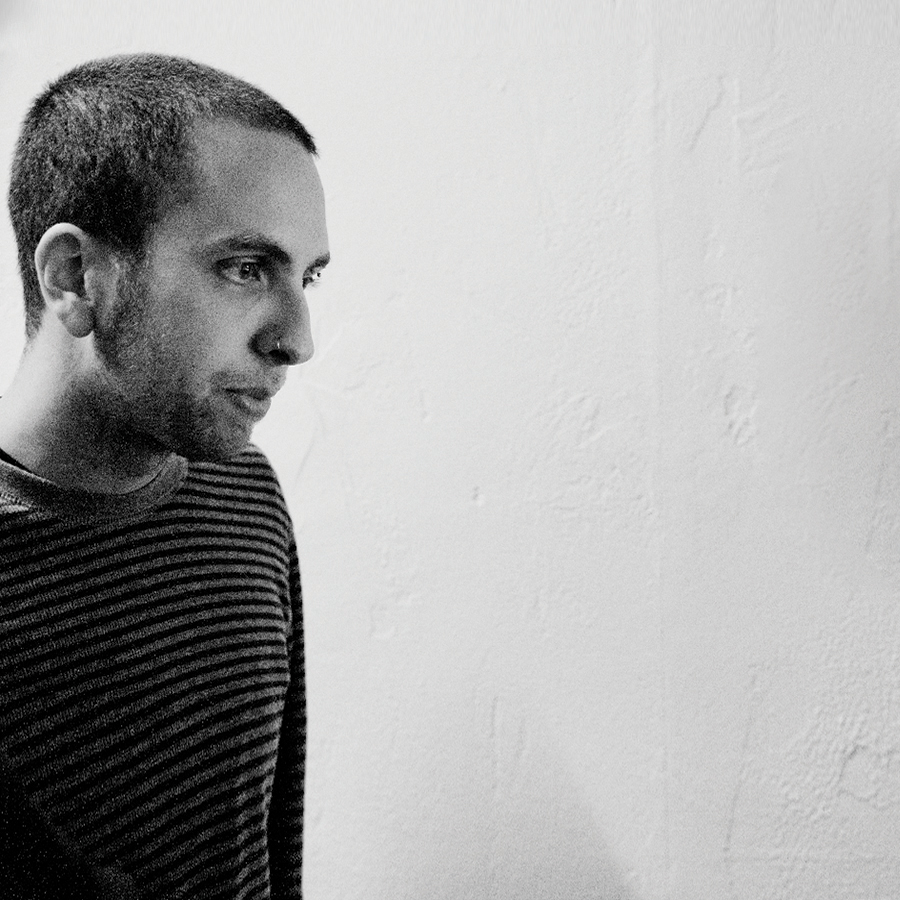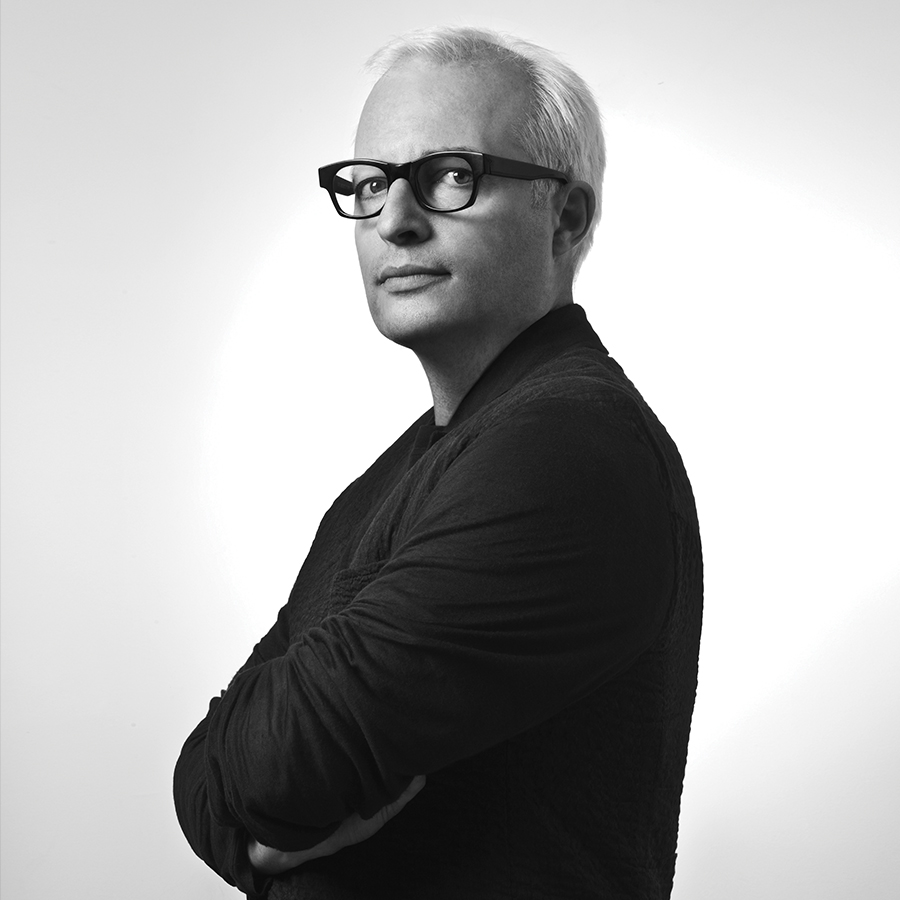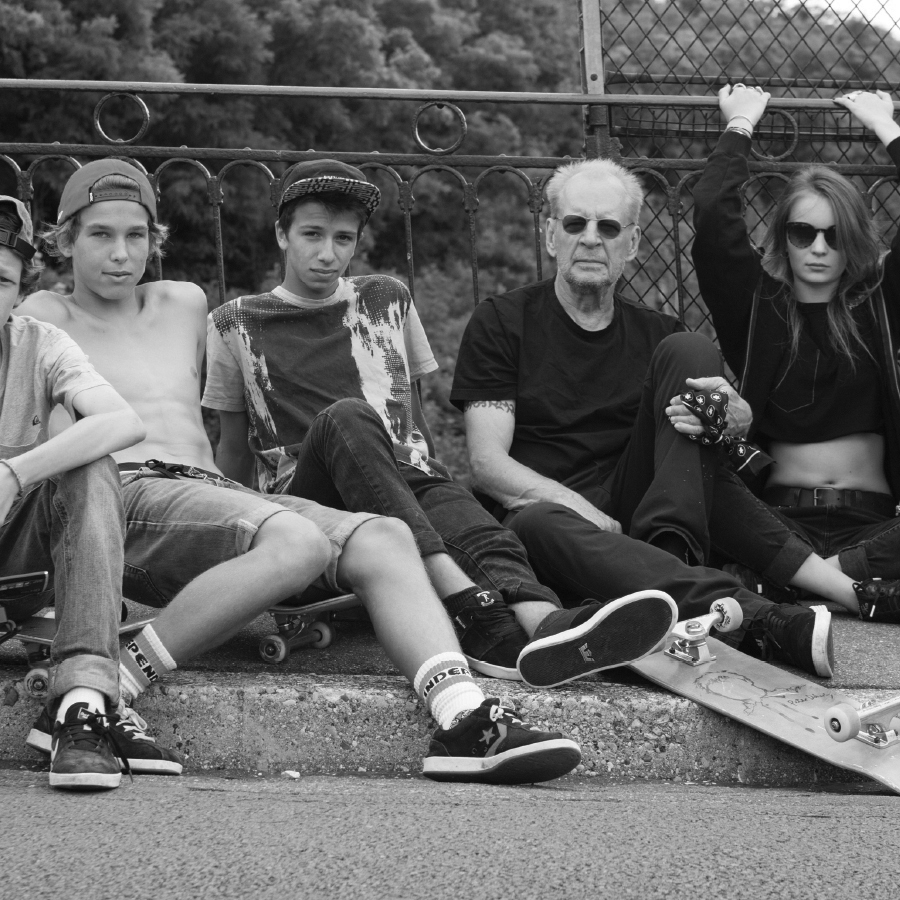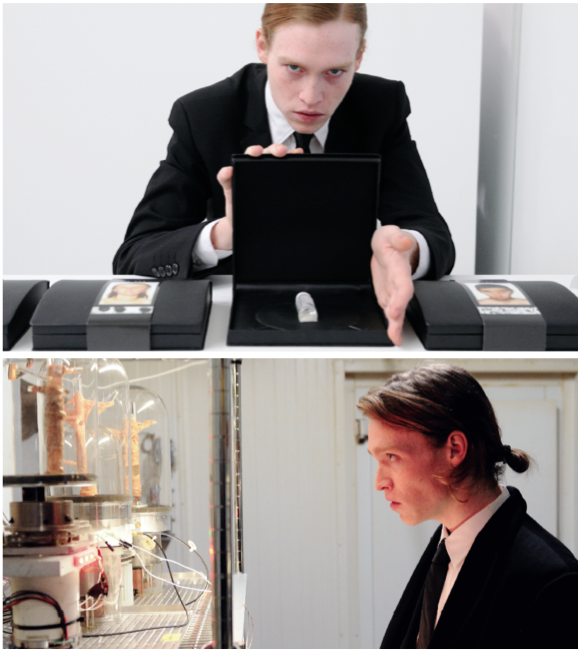
BRANDON CRONENBERG ON LEGACY
By Crash redaction
IN HIS FIRST FEATURE FILM, ANTIVIRAL, BRANDON CRONENBERG CAST THE LOVELY SARAH GADON TO PLAY HANNAH GEIST, A MOVIE STAR WHO CONTRACTS A DEADLY VIRUS. THE FILM TACKLES THE SUBJECT OF FAME AND FANS WHO WILL STOP AT NOTHING TO SHARE SOMETHING WITH THEIR FAVORITE STARS, EVEN DISEASE.
What was the inspiration behind Antiviral? Where did you get this idea of fans obsessed with celebrities?
The idea for the movie originally started with disease, at a time when I was very sick. It was in 2004 when I had just started film school. I was then immersed in a semi-conscious state and started thinking about the physical aspect of my illness, the fact that I had something physically in my body, and that I had caught it from someone else. It’s a very intimate thing when you think about it. So I was trying to figure out what kind of a person might see disease as something intimate, and that’s when I started thinking about fans obsessed with celebrity, and how they are the only ones whose obsession could override revulsion to disease. That’s how the idea grew. I wrote the screenplay on and off for 8 years. I was at the film school, so I had a lot of time to think about it.
Your film highlights the « unhealthy » side of the relationship between celebrities and their fans. Do you think Twitter and social networks might point to a kind of shift in this situation?
The obsession with celebrity has existed for a very long time. In the past, obsession came from a certain religious impulse. I’m thinking about certain aspects of religion such as sainthood, iconography, the repetition of recognizable images, fetishism, relics… So I don’t think it’s a new thing. But I think social media are very interesting because people can act like stars even if they aren’t. What I mean is that people on Facebook and Twitter often play the celebrity or paparazzi and take pictures of themselves and tell everybody what they’re eating and where they’re going and what club they’re at. So I feel like there is a shift when an unknown person embraces a certain fake notoriety by using social networks that are trendy. People photoshop their pictures which gives them an idealized version of themselves.
Was it an obvious choice to cast Caleb Landry Jones in the role of Syd March?
I think he’s really great. I saw him in X-Men and No Country for Old Men, but he was very young and had done more kind of supporting roles so I didn’t have him in mind at first. At a certain point in pre-production, though, his agent sent us a few audition tapes he had done for other movies, and as soon as we saw him we thought he had something extremely fascinating. It’s true he is relatively young and the character was originally meant to be older, but in the end the age thing wasn’t a problem. He could even come off as near thirty, which was the original age for the character anyway.
Do you think the obsession with celebrity necessarily leads to a tragic end?
I think it’s fine to have respect and interest for someone whose work you like. I think that’s perfectly healthy. It’s when it crosses the line and turns into a sort of mania, when it becomes obsessional, when there is a loss of perspective… When that limit is crossed, it becomes unhealthy. But to say that it necessarily leads to a tragic end, I’m not sure about that! What I’m trying to say is that people spend their whole lives being fans, but that doesn’t necessarily mean their lives are going to end in tragedy. But I do think that at a certain point this exacerbated fanaticism can become very harmful and lead to some sort of insanity.
How do you explain the obsession some fans have for their idols?
I don’t have this kind of impulse myself, so it’s a little hard to talk about it. I think we have a real ability to fixate on certain things. We want to find meaning, and I think the mind operates in a very sexual way. I think some people are more susceptible to obsession than others, and when this kind of obsession starts, a mechanism is triggered in the mind. For rock fans, for example, it’s the creation of a character, a myth which becomes very appealing to them. So I think that when those two things are combined, it creates a loss of perspective. But I find it hard to relate to those very extreme forms of obsession. When people are truly insane, I can sort of speculate about how they got there, but I can’t really understand them
Can you tell us more about the scene we see twice, where Sarah Gadon takes off her glasses and poses like a star?
I wanted to try to give the audience a sense of her as an icon, which was an interesting process. At first she liked the script, but didn’t see herself in the role: she couldn’t picture herself as an icon because she just didn’t feel comfortable with that idea. She was amazing, I’m really happy she ended up doing it. There is this one shot in the film, in slow motion, when she’s getting her hair and makeup done. In a way it was a real accident of a shot: Sarah getting into character, the camera was running, and actually the two people are her real hairdresser and makeup artist.
There are a lot of contrasting images in your film: some are extremely bright, almost clinical, and others are much darker. Why do you use this kind of contrast?
I wanted to reflect this fracture that divides celebrities between cultural, idealized images and the human body in reality. Celebrity exists as an idea of perfection in the public’s consciousness. It’s the line in the film. This conceptual, idealized person who is very detached from the actual human body, especially as it decays. Human beings live and die, but celebrity and myth live on. So to reflect this idea in the film, I wanted contrast the kind of magnified, celebrity photography with much darker scenes.
Cannibalism is suggested in your movie. What do you think about it?
That technology exists now. There is a lot of research being done into ways of growing meat. Now there are people who grow cell steaks from cow and pig cells, and they have this could replace livestock, that we could grow our meat from cell culture rather than farming, but it’s a very small step. Though I’m sure someone will do it if they haven’t already! In the film, it’s purely conceptual: there is no murder involved. It’s a kind of cannibalism but without the same reasons. So that’s one aspect of the film. In reality it’s a huge metaphor to suggest that aspect.
You grew up around celebrity. What do you think about it now?
When I would go to a new school, other kids would say they heard I was coming here. Personally, I wondered how they got that information. They would sometimes tell me, « Hey! We have things to talk about. » Why? Because you’ve seen my father’s films. I thought that was insane. You see, that’s how I grew up in a way, so I don’t really know from experience what the alternative is, but I think it’s definitely strange. I imagine that it’s probably the same thing for anyone who has a well-known parent: you are more or less automatically associated with their career because other people approach you like they know you, but unfortunately they have all sorts of preconceived ideas about you.
Was the film’s use of shocking scenes and gore a way to advise caution and raise awareness against possible fanatic excesses?
Someone has mentioned that to me. I thought the scenes could almost be like a kind of therapy, by associating this culture with images that are uncomfortable and repulsive. But it’s also part of the satire. When herpes, which is normally repulsive, becomes suddenly desirable, that’s when the power of celebrity seems very extreme. When the more repulsive something is, the more attractive it becomes. Exaggeration is a big part of the film.
How did you feel about this as a first movie? Are you already working on other projects?
Since I’m still starting out, I still need to learn a lot of things. But overall I’m glad I completed this project, which grew for more than eight years before finally coming together. I invested a lot of energy and a lot of myself into this film, and it was a great experience. Right now I’m writing, but I don’t know what kind of project it will lead to.









